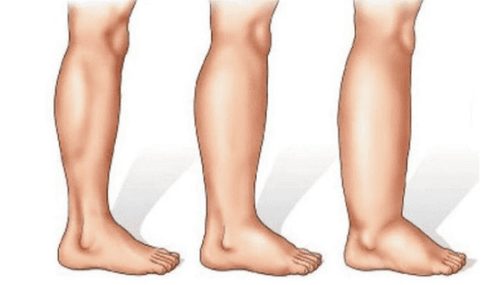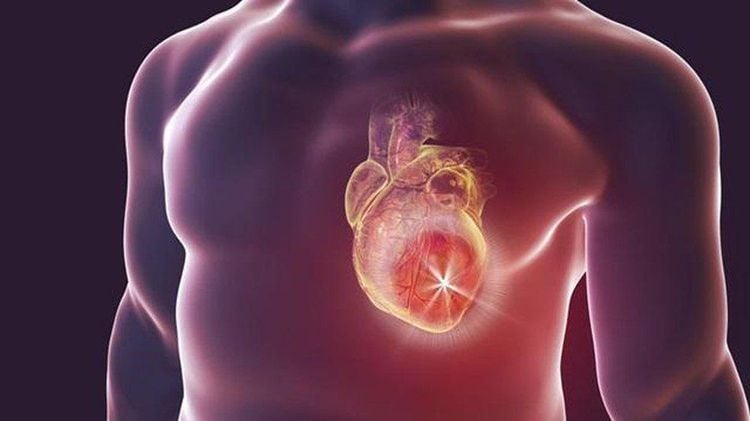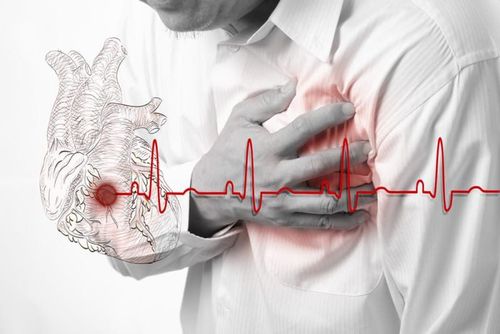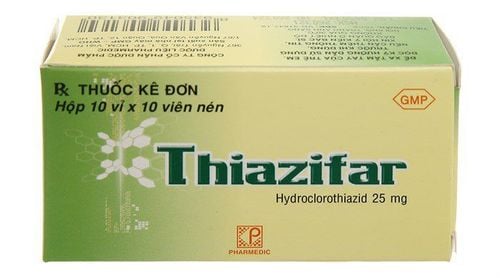This is an automatically translated article.
The article is professionally consulted by Master, Doctor Le Thi Minh Huong - Emergency Medicine Doctor - Department of Resuscitation - Emergency - Vinmec Nha Trang International General Hospital.Edema is one of the common manifestations of certain diseases, such as liver disease, kidney disease, blood vessel blockage, or allergies. Edema can occur on any part of the body, most commonly the hands, feet, and ankles.
1. What is edema?
Edema is a condition in which the body becomes swollen due to fluid retention, injury or inflammation, usually in areas such as the legs, feet or ankles. Sometimes, it can also appear in areas such as the eyes, hands, and even the entire body.When fluid from small blood vessels leaks into nearby tissues, it accumulates and causes the tissues to swell, causing edema.
2. Types of edema
Here are some of the most common types of edema, including:Peripheral edema: this type of edema usually affects mainly the legs, feet and ankles, however, in some cases it can also occurs in the arm. This is a typical sign reflecting problems with the circulatory system, kidneys or lymph nodes in the body. Swollen feet: occurs when excess fluid builds up in the legs and feet. This condition is most commonly seen in pregnant women or the elderly. Swollen feet can make your feet feel numb and make walking more difficult.
Lymphedema: Lymph nodes are tissues that play an extremely important role in filtering germs and waste out of the body. Damaged lymph nodes can lead to swelling in the arms and legs. These lesions are often the result of cancer treatments, including radiation, chemotherapy, and surgery.

3. Causes of edema
Swelling is often caused by problems such as a bee sting , ankle sprain or skin infection . In addition, a number of other factors can also be the main cause of edema, including:Low albumin level: also known as hypoglycemia. Normally, albumin, along with other proteins in the blood, plays an important role in maintaining fluid inside blood vessels. Low albumin levels can cause edema.
Allergic reactions: edema is the most common symptom of allergic reactions. In response to allergens, nearby blood vessels leak fluids into the affected areas. Blood vessel blockage: This condition can cause blood clots in the deep veins of the legs, thereby causing leg swelling.
Critical Illness: Infections, burns, or other life-threatening illnesses can cause reactions that allow fluid to leak throughout the body's tissues. This can cause generalized edema.
Congestive heart failure: When the heart works weak or the blood pumping function becomes less efficient, there will be a gradual accumulation of excess fluid, leading to swelling in the legs, lungs or abdomen.

Kidney disease: nephrotic syndrome is one of the main causes of severe leg swelling, even generalized edema.
Pregnancy: Mild leg swelling is a fairly common symptom during pregnancy. However, a number of other dangerous pregnancy complications, including preeclampsia and deep vein thrombosis, can also cause edema.
Head trauma: conditions such as hyponatremia, altitude sickness, brain tumor or hydrocephalus can cause cerebral edema, accompanied by a number of symptoms, such as confusion, headache, coma and fainting.
Medications: many medications can cause mild swelling or edema symptoms. These drugs, including:
NSAID calcium channel blockers: such as naproxen and ibuprofen Corticosteroids: such as methylprednisolone and prednisone Pramipexole Rosiglitazone and pioglitazone.
4. Symptoms of edema
Usually, the symptoms of edema will depend on the swelling and the swollen area of the body.Small areas of swelling caused by inflammation (eg, mosquito bites) or infection may not cause specific symptoms. On the other hand, a major allergic reaction, such as being stung by a bee, can lead to swelling across the entire arm, causing symptoms, including pain and difficulty moving the arm.
Besides, conditions such as food or drug allergies can also cause swelling of the throat or tongue. The most dangerous symptom of an allergy is difficulty breathing, which can be life-threatening.
When the legs are swollen, the patient will have a feeling of heaviness in the legs and have difficulty moving. In particular, severe leg swelling also impedes blood flow, leading to skin ulcers.
For pulmonary edema, it can cause shortness of breath, coughing and a decrease in blood oxygen levels.

Pitted edema: some indentation or wound that persists for a while after you press on the swollen skin. Non-pitting edema: tissues return to their original shape after pressing on the edematous area. These are the most common signs and symptoms that help your doctor find the cause of your edema.
5. Treatment of edema
First of all, to treat edema, you need to find out its underlying cause. For example, when edema is caused by an allergy, you must treat it with allergy medicine.For swelling in the legs caused by blood clots will be treated with anticoagulants. This medication works to break up blood clots and helps prevent the risk of fluid leaking. In addition, tumors that block blood or lymph nodes can be shrunk and removed through surgery, radiation therapy, or chemotherapy.
Leg edema associated with liver disease and congestive heart failure can be treated with diuretics, such as furosemide (Lasix). This medication helps stimulate the body to urinate more, which in turn causes the fluid that accumulates in the legs to back up into the bloodstream.
In addition, you should also limit your sodium intake to prevent and effectively treat edema.
There are many causes of body edema. Therefore, patients need to monitor and capture the symptoms of edema and visit a doctor soon if they have edema for a long time, or the edema causes shortness of breath or chest pain.
Please dial HOTLINE for more information or register for an appointment HERE. Download MyVinmec app to make appointments faster and to manage your bookings easily.
Source: webmd.com & healthline.com













